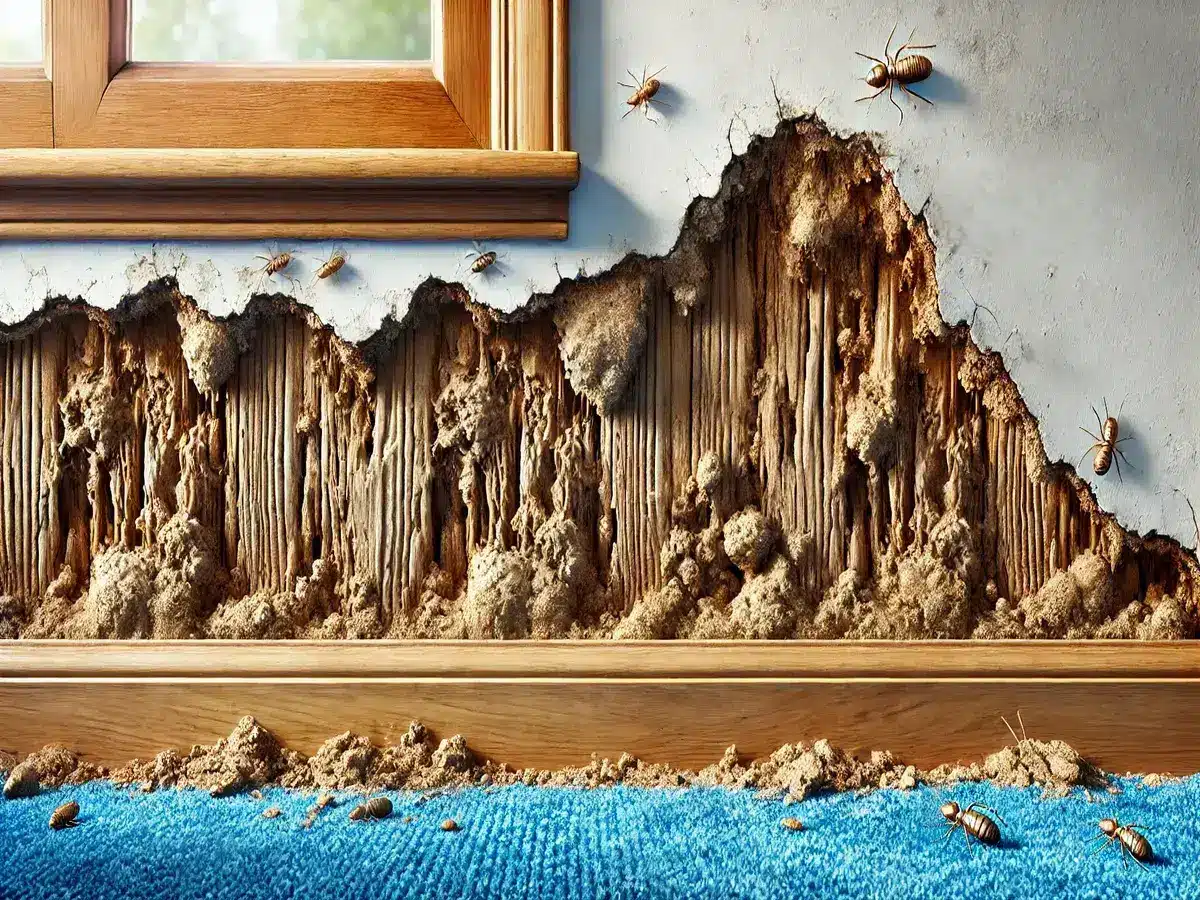Imagine buying your dream home. Several months after moving into your new abode, you observe soft wood and unfamiliar clicks from the walls. It turns out termites have been secretly feeding on the inside of your investment.
Such horror stories are not rare because these types of incidents happen frequently. If you want to protect your house from termites, conducting an inspection should be among your smartest decisions, and in this blog, we tell you why.
What Is A Termite Inspection
During a termite inspection, professional termite inspectors evaluate homes with complete examinations of properties. They examine areas for termite evidence and operational and environmental factors that may result in potential infestations.
The inspection involves more than detecting bugs. The objective of early detection is to prevent future expenses because these things happen frequently.
Why Are Termite Inspections So Important
Termites earn their nickname “silent destroyers” because they work without producing any sounds. Termites destroy wood and damage floors and wallpaper while staying hidden until the damage is extensive.
Every year in the United States, termites damage property worth more than $6.8 billion, as confirmed by the National Pest Management Association.
Here’s why termite inspections matter:
- Early detection saves money.
- Implementing preventive measures will stop future infestations.
- They protect your property value.
- They are highly recommended during home sales.
How Long Does A Termite Inspection Take
The duration of a termite inspection depends on your property’s size and condition, but it usually takes an hour or so. Larger homes and properties with crawl spaces or basements typically require more time.
Whatever time it takes to perform the inspection, remember it is an investment in your future and can save you a lot of money later.
What Does A Termite Inspection Involve
The examination follows a clearly defined pattern and performs an inclusive assessment. Here’s what you can expect:
Interior And Exterior Inspection
A standard inspection involves checking baseboards, door frames, windows, attics, crawlspaces, and foundations. The survey also checks for discarded termite wings and droppings, mud tubes, and hollow wooden areas.
Moisture And Wood Damage Assessment
Termites love moist environments. The inspection focuses on finding leaks and checking for wet areas where termites can find suitable homes.
Report And Recommendations
The report will include assessments of visible damage, signs of infestation, and recommendations for treatment or prevention.
Signs You Might Already Have Termites
Thanks to the stealthy nature of termites, you won’t feel their presence until structural damage is evident. Look out for these typical warning signs:
- Hollow-sounding wood when tapped.
- Mud tubes appear along wall surfaces and foundation elements.
- Crumpled wings accumulate in the vicinity of doorways or windows.
- Bubbling paint or buckling wood.
- Be wary of any unfamiliar clicking sounds (especially from walls). These are termites chewing wood. It is not loud; you can hear them at night in silence.
Get in touch with a termite inspector immediately after spotting any of these indicators.
Termite Inspections For Home Buyers & Sellers
Termite assessments are almost mandatory when you purchase or sell your home because of several benefits. Let’s look at some of them.
- For buyers: It stops you from acquiring properties with structural problems and hidden issues.
- For sellers: The examination confirms that your residence is free from pests, which enhances buyer trust.
Many states require buyers to obtain a “WDO” (Wood Destroying Organism) report before house closing.
How Often Should You Get A Termite Inspection
Homeowners in Southeast, Southwest, and coastal states should have termite inspections at least once a year. This is because these states are prone to termite activity.
Having previous termite attacks or wooden frames close to the soil means increased inspections to stay protected.
Tips For Preventing Termite Infestations
Inspection remains essential, but preventing termite activity must be considered equally important. Try these easy preventive tips as follows:
- Keep your wood and mulch at least one foot away from the foundation.
- Fix every leak and minimize moisture levels inside the home.
- Ensure your home is properly ventilated and has an adequate drainage system.
- Store firewood away from the home.
- Apply waterproof materials to seal all openings in windows and doors.
Being proactive brings sizable benefits. A little vigilance now will go a long way in ensuring your home remains termite-free.
Final Thoughts
When purchasing a house, don’t skip termite inspection in the excitement of buying a house. It is a basic procedure that costs little and safeguards your residence against substantial destruction, financial loss, and anxiety.
You might not notice anything wrong with your property, but that doesn’t mean all is well. Always look for signs of termite activity and call professional help whenever you suspect anything.
Red Fish Inspections focuses on providing homeowners with complete and dependable termite assessment services to ensure they live peacefully. Our services cover all the needs that owners might have, from property acquisition to protection and sale transactions.
Red Fish Inspections delivers quick, reliable results through licensed inspectors who offer expert guidance and objective evaluations.
Do not delay termite inspection until it becomes too late. Guard your most valuable asset, your house, by booking an inspection with Red Fish Inspections right now.


